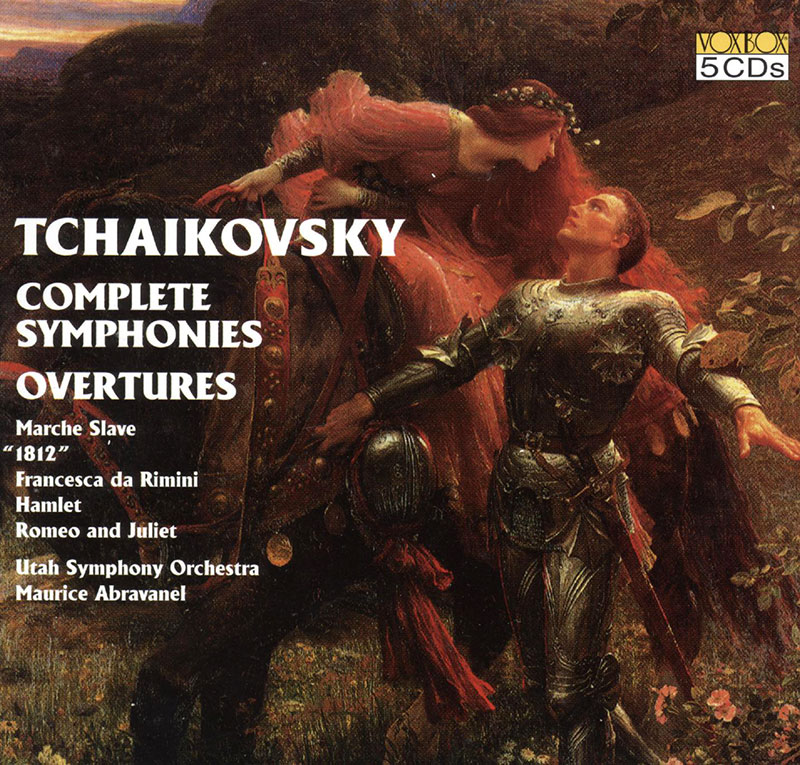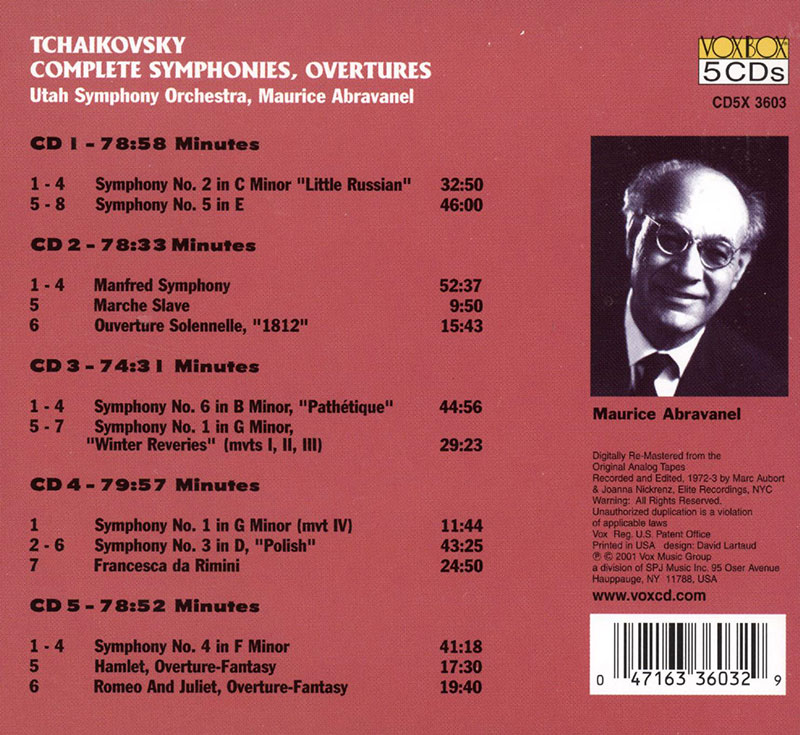Logowanie
Dziś nikt już tak genialnie nie jazzuje!
Bobby Hutcherson, Joe Sample
San Francisco
SHM-CD/SACD - NOWY FORMAT - DŻWIĘK TAK CZYSTY, JAK Z CZASU WIELKIEGO WYBUCHU!
Wayne Shorter, Freddie Hubbard, Herbie Hancock, Ron Carter, Elvin Jones
Speak no evil
UHQCD - dotknij Oryginału - MQA (Master Quality Authenticated)
Chesky! Niezmiennie perfekcyjny
Winylowy niezbędnik
ClearAudio
Double Matrix Professional - Sonic
najbardziej inteligentna i skuteczna pralka do płyt winylowych wszelkiego typu - całkowicie automatyczna
TCHAIKOVSKY, Utah Symphony Orchestra, Maurice Abravanel
Complete Symphonies / Overtures

- Utah Symphony Orchestra - orchestra
- Maurice Abravanel - conductor
- TCHAIKOVSKY
The recordings of Maurice Abravanel and the Utah Symphony offer a striking parallel to those of John Barbirolli and the Hallé Orchestra. Both feature first-rate conductors allied to second-rate ensembles, and though the Utah forces routinely outplay their Manchester colleagues (you can, if you wish, compare directly in the last three symphonies), there's no denying the fact that neither offers serious competition to the world's great orchestras. Still, there's much to enjoy here. As a Tchaikovsky interpreter, Abravanel was superb, full of good ideas about pacing and balance (for an excellent case in point, check out the end of the Manfred Symphony's first movement), and the orchestra plays sufficiently well that it seldom if ever becomes a liability in the sense that it prevents the conductor's intentions from communicating to the listener. The highlights here include sensational performances of the first three symphonies. It's indicative of Abravanel's deep musicality that he scores such impressive successes in difficult moments such as the finales of Symphonies 1 and 2 (the coda of the former, taken at a blistering pace, actually vindicates Tchaikovsky's conception for once), and also turns in a deeply committed, extremely exciting Symphony No. 3. His Manfred Symphony also is one of the best available (beware, though, a bit of the first movement is tracked onto the beginning of the second, though the music itself plays correctly and we are advised this has been corrected in recent pressings). You simply won't hear that problematic finale build to a more logically satisfying conclusion, with the tones of the organ ideally blended with the orchestral winds. In the later symphonies, there's a fresh and direct No. 4 (fine string playing in the pizzicato scherzo, and again a very good finale), an exciting No. 5 where the forward wind balances call to mind Klemperer's superb EMI recording, and a Pathéthique noteworthy both for Abravanel's very deliberate tempo in the first movement's development section, and for the extraordinary clarity of texture (listen to those bass lines!) that vindicates this decision. The tone poems include a sensational Marche Slave that's not afraid of its own vulgarity, a dynamic 1812 Overture with well-mixed "special effects" (bells and cannon shots), a dull Francesca da Rimini, and impressively cogent, urgent renditions of the two Shakespeare pieces: Hamlet and Romeo and Juliet. Throughout the set, Vox provides vivid sound, light in the bass at times, but offering an unvarnished picture of an orchestra that could use richer strings and a bit more polish from the winds and brass, but that never waivers in its commitment to the cause. As a complete set of symphonies coupled to a mostly fine selection of other popular orchestral works, Abravanel's achievement sports more consistency than most, at a price that's well nigh unbeatable. --David Hurwitz, ClassicsToday.com


































